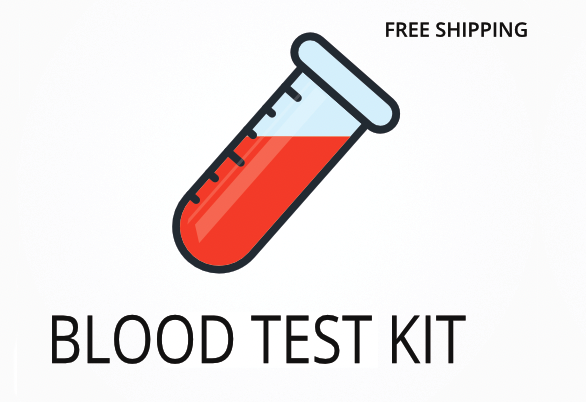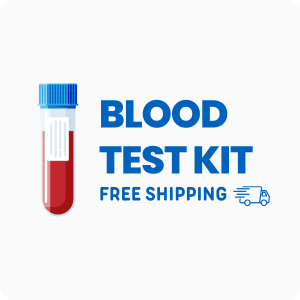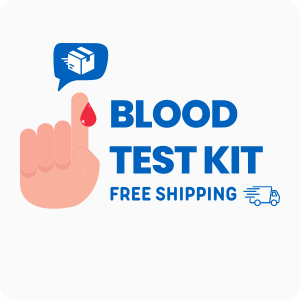Ordering the Comprehensive Nutritional Panel / Micronutrient Panel by Spectracell
The Comprehensive Nutritional Panel / Micronutrient Panel by Spectracell helps you see which vitamins, minerals, amino acids, and antioxidants your body is using well and which ones may be low. This test can show if your cells are getting enough nutrients to support things like energy, focus, and muscle strength. Interestingly, this panel can also reveal how well your body handles stress by measuring antioxidant function, which is not always checked in standard nutrition tests.
Ordering this test gives you a clear picture of your nutrient status and helps you make targeted changes. Here are some specific benefits of ordering the Comprehensive Nutritional Panel / Micronutrient Panel by Spectracell:
- Identifies specific vitamin and mineral deficiencies that may affect energy, mood, and immune support
- Measures antioxidant levels to help you understand your body’s ability to handle oxidative stress
- Assesses amino acid and fatty acid status, which can impact muscle function and brain performance
- Evaluates how well your body absorbs and uses nutrients, not just what’s in your blood
- Provides detailed results to help guide dietary and supplement choices for measurable improvements
Who Should Consider Advanced Nutrient and Micronutrient Testing
People who feel tired even after a full night’s sleep, notice changes in their hair or nails, or have trouble focusing at work may benefit from this test. For example, someone who eats a balanced diet but still feels low on energy and gets frequent muscle cramps might discover a hidden magnesium or vitamin D deficiency through this panel.
Ordering this test may also be helpful in these situations:
- Experiencing slow recovery after exercise or injury
- Having ongoing digestive issues that could affect nutrient absorption
- Following a restricted diet, such as vegan or gluten-free, that may miss key nutrients
- Noticing changes in skin, such as dryness or slow healing
- Having a family history of early bone loss, which can be linked to low vitamin K2 or calcium
This test is a practical way to find out if your body is missing important nutrients that support energy, focus, and muscle strength. Delaying this test could mean missing the chance to correct nutrient gaps before they start to affect things like bone strength or immune support. To get started, order the Comprehensive Nutritional Panel / Micronutrient Panel by Spectracell today.
How to Prepare for Micronutrient and Vitamin Deficiency Testing
Fasting is not required for this test, so you can eat and drink as usual before your blood draw. Always follow any instructions your doctor or healthcare professional gives you to make sure your sample is collected the right way and your results are as helpful as possible.
Labs Included When Ordering Your Comprehensive Nutritional Panel / Micronutrient Panel by Spectracell
| Test Name | Reference Range | Significance | Low and High Levels of Comprehensive Nutritional Panel / Micronutrient Panel by Spectracell |
|---|---|---|---|
| Asparagine | 32-80 | Asparagine is an amino acid important for brain function and energy production. It helps with protein synthesis and supports nerve signaling. |
High levels mean your body may be breaking down proteins too quickly or have kidney issues.
Low levels mean you may have trouble with memory, focus, or muscle recovery. |
| Biotin | 200-1200 | Biotin is a B vitamin that helps your body use fats, carbohydrates, and proteins. It supports hair, skin, and nail strength. |
High levels mean you may be taking too many supplements.
Low levels mean you could have brittle nails, hair loss, or skin rashes. |
| Calcium | 8.6-10.2 | Calcium is needed for strong bones, teeth, and muscle movement. It also helps nerves send signals. |
High levels mean you may have kidney problems or overactive parathyroid glands.
Low levels mean you could have weak bones, muscle cramps, or tingling. |
| Carnitine | 30-60 | Carnitine helps turn fat into energy and supports heart and muscle function. It is important for exercise recovery. |
High levels mean your body may not be using fat for energy well.
Low levels mean you may feel tired or have muscle weakness. |
| Choline | 7-20 | Choline is needed for brain development, memory, and muscle movement. It also helps your liver work well. |
High levels mean you may have liver issues or take too many supplements.
Low levels mean you could have memory problems or muscle aches. |
| Chromium | 0.1-0.5 | Chromium helps your body use insulin and keep blood sugar steady. It is important for energy and weight control. |
High levels mean you may have kidney problems or take too many supplements.
Low levels mean you could have trouble with blood sugar or feel tired. |
| Coenzyme Q10 | 0.5-1.7 | Coenzyme Q10 is an antioxidant that helps your cells make energy. It supports heart and brain function. |
High levels mean you may be taking too many supplements.
Low levels mean you may feel tired or have muscle aches. |
| Copper | 70-140 | Copper helps make red blood cells and supports your immune system. It also helps your body use iron. |
High levels mean you may have liver problems or inflammation.
Low levels mean you could have anemia or feel weak. |
| Cysteine | 200-300 | Cysteine is an amino acid that helps make antioxidants and supports skin, hair, and nail health. |
High levels mean you may have kidney issues or take too many supplements.
Low levels mean you may have weak hair or nails. |
| Folate | 5-20 | Folate is a B vitamin needed for making DNA and red blood cells. It is important for mood and memory. |
High levels mean you may be taking too many supplements.
Low levels mean you could have anemia or trouble with memory. |
| Fructose Sensitivity | Negative | This test checks if your body has trouble processing fructose, a sugar found in fruit and some sweeteners. |
High levels mean you may have trouble digesting fructose.
Low levels mean your body handles fructose well. |
| Glucose/Insulin Metabolism | 70-99 | This test shows how well your body manages blood sugar and insulin, which affects energy and weight. |
High levels mean you may have trouble with blood sugar control.
Low levels mean you may have low energy or dizziness. |
| Glutamine | 400-700 | Glutamine is an amino acid that helps with muscle repair and supports the immune system. |
High levels mean you may have kidney issues or muscle breakdown.
Low levels mean you may have slow muscle recovery or get sick more often. |
| Glutathione | 5-15 | Glutathione is a strong antioxidant that protects your cells from damage and supports detoxification. |
High levels mean your body is fighting off stress or toxins.
Low levels mean you may be more sensitive to toxins or get sick more easily. |
| Inositol | 20-60 | Inositol helps with nerve signaling and supports mood balance and hormone function. |
High levels mean you may be taking too many supplements.
Low levels mean you may have mood swings or trouble with hormones. |
| Lipoic Acid | 1-10 | Lipoic acid is an antioxidant that helps your body use energy and supports nerve health. |
High levels mean you may be taking too many supplements.
Low levels mean you may have nerve tingling or slow energy use. |
| Magnesium | 1.7-2.2 | Magnesium helps with muscle movement, nerve function, and bone strength. It also supports sleep and mood. |
High levels mean you may have kidney problems.
Low levels mean you could have muscle cramps, trouble sleeping, or feel anxious. |
| Manganese | 4.7-18.3 | Manganese helps your body use carbohydrates, proteins, and cholesterol. It supports bone and brain function. |
High levels mean you may have liver issues or take too many supplements.
Low levels mean you may have weak bones or trouble with memory. |
| Oleic Acid | 30-50 | Oleic acid is a healthy fat that supports heart and brain function. It helps lower bad cholesterol. |
High levels mean you may be eating too many fatty foods.
Low levels mean you may have trouble with memory or dry skin. |
| Pantothenate | 1-7 | Pantothenate, or vitamin B5, helps your body make energy from food and supports hormone production. |
High levels mean you may be taking too many supplements.
Low levels mean you may feel tired or have headaches. |
| Selenium | 70-150 | Selenium is an antioxidant that helps protect your cells and supports thyroid function. |
High levels mean you may have brittle nails or hair loss.
Low levels mean you may have weak immune support or thyroid problems. |
| Serine | 80-180 | Serine is an amino acid that helps with brain function and making proteins. |
High levels mean you may have kidney issues.
Low levels mean you may have trouble with memory or mood. |
| SPECTROX™ | Optimal | SPECTROX™ measures your total antioxidant function, showing how well your body handles oxidative stress. |
High levels mean your antioxidant defense is strong.
Low levels mean you may be more sensitive to stress or toxins. |
| Total Antioxidant Function | Optimal | This test shows how well your body can fight off damage from free radicals, which can affect aging and inflammation. |
High levels mean your body is well protected.
Low levels mean you may have more inflammation or age faster. |
| Vitamin A | 20-60 | Vitamin A supports vision, immune support, and skin health. |
High levels mean you may have headaches or liver issues.
Low levels mean you may have trouble seeing at night or dry skin. |
| Vitamin B1 | 70-180 | Vitamin B1, or thiamine, helps your body turn food into energy and supports nerve function. |
High levels mean you may be taking too many supplements.
Low levels mean you may feel tired or have nerve tingling. |
| Vitamin B2 | 5-50 | Vitamin B2, or riboflavin, helps your body use energy and supports skin and eye health. |
High levels mean you may be taking too many supplements.
Low levels mean you may have cracked lips or sore throat. |
| Vitamin B3 | 0.5-8 | Vitamin B3, or niacin, helps your body use energy and supports skin, nerves, and digestion. |
High levels mean you may have skin flushing or liver issues.
Low levels mean you may have skin rashes or feel tired. |
| Vitamin B6 | 5-30 | Vitamin B6 helps your body use protein and supports brain and immune function. |
High levels mean you may have nerve tingling.
Low levels mean you may have mood changes or get sick more often. |
| Vitamin B12 | 200-900 | Vitamin B12 helps make red blood cells and supports nerve and brain function. |
High levels mean you may be taking too many supplements.
Low levels mean you may have anemia or nerve tingling. |
| Vitamin C | 0.6-2.0 | Vitamin C is an antioxidant that helps your body heal and supports immune support. |
High levels mean you may have diarrhea or stomach upset.
Low levels mean you may have slow healing or get sick more often. |
| Vitamin D | 30-100 | Vitamin D helps your body absorb calcium and supports bone, muscle, and immune function. |
High levels mean you may have kidney problems or high calcium.
Low levels mean you may have weak bones or feel tired. |
| Vitamin E | 5-20 | Vitamin E is an antioxidant that protects your cells and supports skin and eye health. |
High levels mean you may have bleeding problems.
Low levels mean you may have weak muscles or vision changes. |
| Vitamin K2 | 0.2-3.2 | Vitamin K2 helps your blood clot and supports bone strength. |
High levels mean you may be taking too many supplements.
Low levels mean you may bruise easily or have weak bones. |
| Zinc | 70-120 | Zinc helps your body heal, supports immune support, and is important for taste and smell. |
High levels mean you may have stomach pain or headaches.
Low levels mean you may have slow healing or lose your sense of taste. |
Reference ranges may change slightly as labs update their methods and guidelines. Always check your report for the most current reference values.
Comprehensive Nutritional Panel / Micronutrient Panel by Spectracell FAQ
Is there Comprehensive Nutritional Panel / Micronutrient Panel by Spectracell testing near me?
This is a test kit that can be collected at a local draw site—check the draw location link at the top of the page. For people who need answers about ongoing fatigue or unexplained symptoms, having a nearby collection site makes it easier to get tested quickly and start finding solutions.
How do I interpret the test results?
While your treating physician should always help you interpret your results, we also offer a one-on-one test results review with our clinical team to help you understand your results and next steps.
What is the cost of the test?
The price you see for this test includes standard shipping to you and back to the lab, though draw fees may apply. Ordering this test is worth it if you want to find out if nutrient gaps are slowing your recovery or causing symptoms like tiredness or muscle cramps.
How often should I retest?
Retesting is usually recommended every 6-12 months, especially if you are making changes to your diet or supplements. Regular testing helps you track progress and make sure your nutrient levels are moving in the right direction.
How accurate is the test?
This test uses lymphocyte proliferation and spectrophotometric analysis to measure how your white blood cells respond to nutrients, with a specificity of 98% and sensitivity of 97%. TrueHealthLabs.com partners with CLIA-certified and CAP-certified laboratories to uphold rigorous testing standards for dependable results.
Medical Review Board
Reviewed by Jeff Donohue M.D. from Body Logic and Brady Hurst DC, CCCN. Written by True Health Lab’s team of editorial health contributors.
Disclaimer: This information is for educational purposes only and not intended as medical advice. Consult your healthcare provider for personalized guidance.
Why Customers Trust True Health Labs – What People are saying
Also rated 4.6 out of 5 based on 3452 ShopperApproved reviews- See all TrueHealthLabs.com reviews.









